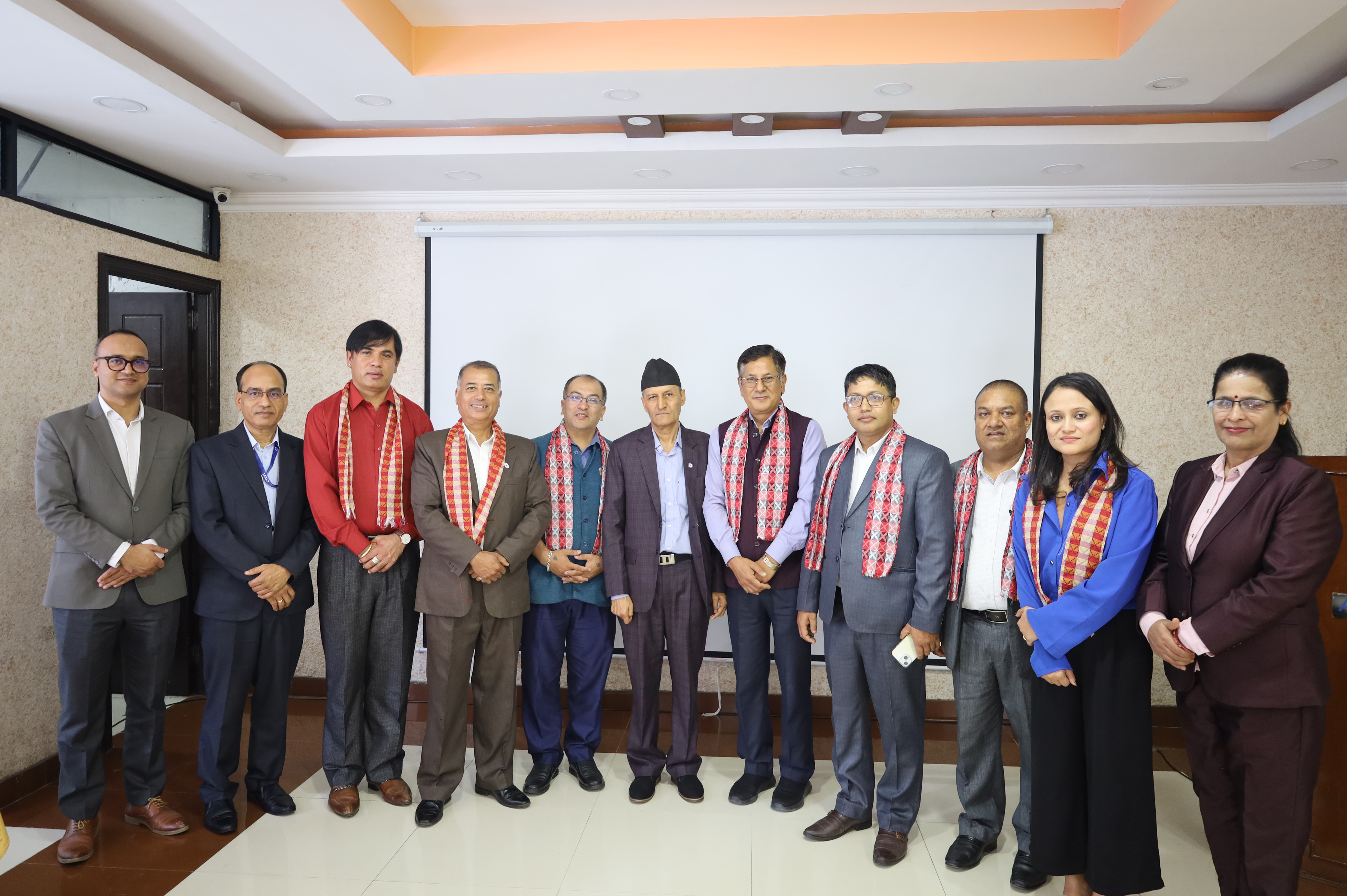Formalization of Sector Skill Committees in Beauty, Wellness & Yoga, and Handicraft & Jewelry
On October 4, 2024, a formal event was held to fomalize the two new Sector Skill Committees (SSCs): Beauty, Wellness, and Yoga; and Handicraft and Jewelry. The members of the new committees were welcomed by Engineer Mahesh Bhattarai, Member Secretary of the Council for Technical Education and Vocational Training (CTEVT).
During the event, the member scretary congratulated the newly appointed members of both committees and emphasized the crucial role of the private sector in Technical and Vocational Education and Training (TVET). He noted, “It is vital that we, as a society, promote TVET as the first choice for young people. Preserving and promoting indigenous skills is equally important, and in today's context, building human resources is akin to preserving resources.”
The formation of sector skill committees in Nepal began in 2017 with the establishment of committees for Hospitality and Construction. Since then, additional committees have been formed for sectors such as Automobile (2019), Information and Communication Technology (ICT) (2022), Agriculture (2022), and Manufacturing (2023). These committees have developed occupational sector maps for their respective sectors, forming the foundation for competency certification.
This latest event marks the formalization of the Beauty, Wellness, and Yoga Sector Skill Committee, led by Chairperson Ms. Shobha Gurung and supported by members including Mr. Bijayalal Kayastha, Mr. Shukdev Karki, Dr. Janak Bahadur Basnet, Ms. Jamuna Bhandari, Mr. Suresh Puri, Mr. Ramdev Mahato, Ms. Sabita Adhikari and Mr. Keshab Ghimire as member secretary.
The Handicraft and Jewelry Sector Skill Committee is chaired by Mr. Prachanda Man Shakya and co-chaired by Mr. Manik Ratna Shakya, with other members including Mr. Diyash Ratna Shakya, Mr. Mohan Vishwakarma, Mr. Surya Baral, Mr. Shyam Kumar Bishwakarma, Ms. Jyotsna Shrestha, Mr. Dibya Chandra Acharya, Ms. Dipa Kunwar, Mr. Palsangmo Lama (Pema Dorje) and Ms. Sharada Ghimire Ghimire as member secretary.
The event began with a presentation by Mr. Tek Bahadur Malla, Director of the National Skill Testing Board, who provided a historical overview of skill testing and emphasized its significance, particularly following the approval of the National Qualification Framework (NQF) by the Government of Nepal in 2020. Mr. Malla stated, “Our objective is to bridge the gap between the qualifications individuals possess and the demands of the labor market. Additionally, we aim to assess and certify pre-existing knowledge and skills according to national qualification levels.”
Following Mr. Malla's presentation, Mr. Subas Subedi, Team Leader of the Nepal Vocational Qualification System (NVQS) Project, highlighted the international significance of sector skill committees and their relevance in Nepal. Mr. Subedi noted that eight sector skill committees have been formed to date, with plans to further anchor these committees with relevant professional associations. “Our long-term vision is to establish these committees as councils. By allowing the private sector to lead competency certification, curriculum development, and skill testing, we can better align the labor market with the workforce,” he added.
One of the successful collaborations mentioned during the program was the anchoring of the Manufacturing Sector Skill Committee with the Confederation of Nepalese Industries (CNI). This model was highlighted as a key step in promoting industry engagement.
Mr. Prem Kumar Mangrati, the Result Measurement Specialist at the NVQS Project, provided further insight into the roles and structures of the committees. He elaborated on the critical responsibilities of these committees, including skill mapping, certification development, curriculum design, and support for skill testing and certification, all under the guidance of CTEVT/National Skill Testing Board.
Representatives from existing Sector Skill Committees, including Mr. Kishor Shakya (Construction), Mr. Hom Bahadur Basnet (Agriculture), and Mr. Binod Dhakal (ICT), expressed their commitment to making the committees more dynamic and urged CTEVT to take a proactive leadership role in this regard. Similarly, Mr. Youb Raj Shrestha, Treasurer of the Hotel Association of Nepal, shared his enthusiasm for private sector involvement in TVET and voiced his intent to link the Hospitality Sector Skill Committee with the Hotel Association Nepal.
Speaking on behalf of the construction sector, Mr. Roshan Dahal, Secretary General of the Federation of Contractors‘ Associations of Nepal (FCAN) stressed the importance of understanding the challenges and practices of the private sector to ensure that TVET programs meet labor market demands. He also expressed a commitment to anchoring the Construction Sector Skill Committee with the FCAN.
The program was expertly moderated by Ms. Sharda Ghimire, unit head of Marketing and Public Relations unit at the National Skill Testing Board.
